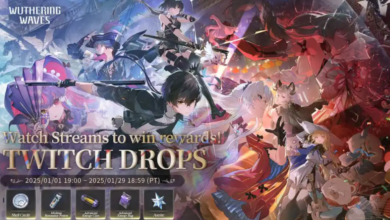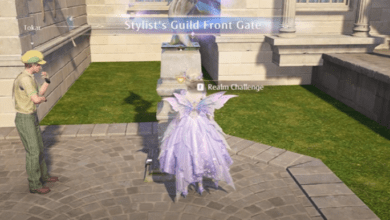Marvel’s Guardians of the Galaxy: A Hidden Gem That Set the Stage for Future Superhero Games
Marvel’s Guardians of the Galaxy may have flown under the radar upon its release in 2021, but it quickly proved itself to be one of the most surprising hits of the year. As an impressively realized title, Guardians brought an engaging and well-written narrative to the gaming world, reminiscent of the beloved Mass Effect series. For fans of both superhero content and RPG-style games, this was an unexpected treat, and its success has sparked a discussion about the future of superhero games, especially in light of recent flops like Suicide Squad: Kill the Justice League and Marvel’s Avengers.

This article will explore the unique aspects that made Guardians of the Galaxy stand out, the influence of James Gunn’s vision, and how the future of superhero games might evolve with better adaptations from both Marvel and DC universes.
The Success of Marvel’s Guardians of the Galaxy: What Made It So Special?
The success of Marvel’s Guardians of the Galaxy can be attributed to several key factors, each working together to create a cohesive and engaging gaming experience. Let’s break it down:
- Character-Driven Storytelling: Guardians of the Galaxy excelled in creating a well-rounded cast of characters, each with their own personality, struggles, and growth. This was not just a game about fighting villains and saving the universe it was about connection, teamwork, and the complexities of relationships.
- Immersive Gameplay: The gameplay itself, while not groundbreaking, was executed with a high level of polish. The combat felt fluid, the world-building was robust, and the dialogue choices gave players a sense of agency in how they interacted with the world around them.
- A Clear Influence from Mass Effect: Comparisons to Mass Effect are not unwarranted. The game’s structure balancing character-driven moments with action sequences closely mirrors that of BioWare’s space epic. The result? An RPG-style superhero game that made players care as much about their squad’s well-being as they did about defeat the enemy.
These elements helped position Guardians as a clear sign of the untapped potential in superhero games. It proved that, when done right, games based on beloved comic characters can offer players much more than simple beat-’em-up mechanics.
The Gunn Effect: How James Gunn’s Vision Shaped Guardians of the Galaxy
You can’t talk about Guardians of the Galaxy without mentioning the significant influence of director James Gunn. Gunn brought his distinctive style to the Marvel Cinematic Universe (MCU), injecting the Guardians films with wit, charm, and an undercurrent of heart. This, in turn, laid the foundation for the video game adaptation.
Gunn’s ability to balance humour with heartfelt moments in his films translated seamlessly into the game. The character dynamics in Marvel’s Guardians of the Galaxy felt like they had been lifted straight out of a Gunn movie. You’ve got Drax with his deadpan humour, Rocket’s sharp wit, and Star-Lord’s earnest (if slightly misguided) optimism all wrapped in a quirky space adventure that never takes itself too seriously.
The success of Guardians shows that superhero games can benefit greatly from visionary creators like Gunn. His influence extends beyond the game’s story, as Guardians echoes the energy and personality that made his films so beloved. It’s a testament to how great filmmaking can inspire equally great video games.
Could James Gunn’s DC Projects Lead to Better DC Games?
With Gunn now having jumped ship from Marvel to DC, fans are eager to see what kind of influence he might have on DC’s upcoming slate of projects. His approach to storytelling rooted in deep character development and unique ensemble casts could provide the blueprint for future video games based on iconic DC characters.
What could this look like in the world of gaming?
- A Sincere Superman Game: Gunn is currently working on a Superman reboot, and while it’s clear that the film will focus on sincerity and heroism, there’s potential for this style to inspire a future Superman video game. In fact, a Superman game that highlights the moral and ethical dilemmas of being the “Man of Steel” could offer a unique gaming experience, where players must make difficult choices in the face of overwhelming power.
- Expanding the DC Universe: Gunn’s work on The Suicide Squad film was a soft reboot that brought fresh life to the franchise. This success could spark a new, improved Suicide Squad game that leans into the eccentric characters and dark humour Gunn is known for, potentially offering something far more interesting than the current live-service iteration.
- New Possibilities for Team-Up Games: DC’s vast universe of characters offers nearly limitless potential for team-based games. While Guardians of the Galaxy was inspired by Gunn’s style, there’s no reason why DC can’t follow suit. Imagine a team-up game with characters like Flash, Green Lantern, or even the Teen Titans, where the focus is on building relationships within the squad, much like how Guardians handled its team dynamics.
The Future of Superhero Games: A Shift Towards Character and Story
Historically, superhero video games have had a rocky track record. For every Spider-Man or Batman: Arkham Asylum, there’s a Marvel’s Avengers or Suicide Squad games that failed to live up to their potential due to lacklustre storytelling or clunky gameplay.
But what if superhero games could evolve?
The future of superhero games lies in creating more than just visually impressive action sequences. Gamers want to feel connected to the characters they’re playing. They want emotional stakes, tough decisions, and narrative depth. Guardians of the Galaxy proved that superhero games can deliver this level of engagement.
- Moving Beyond Movie Tie-Ins: One thing that is certain is that the future of superhero video games should not be tethered to movie tie-ins. As Gunn himself has mentioned, games in the DCU won’t simply be rehashes of film plots they’ll be original stories that exist in the same universe, allowing for creative freedom without the constraints of existing canon.
- Taking Risks with Lesser-Known Characters: Much like Guardians introduced many players to characters they weren’t intimately familiar with; future superhero games can succeed by focusing on lesser-known heroes. A well-written narrative and strong gameplay mechanics can turn even the most obscure characters into fan favourites.
Bold New Ideas for DCU Games: Where Could They Go Next?
The possibilities for superhero games in the DC Universe are nearly endless. Here are just a few ideas that could push the genre forward:
- Ra’s Al Ghul Souls-like Game: Imagine a dark, challenging game where players control Ra’s Al Ghul during the founding of the League of Assassins. Each death could be canon, with Ra’s being revived in the Lazarus Pit, gaining new abilities after each revival.
- Black Manta Survival Horror: Picture a Subnautica-style game where Black Manta must survive in the depths of the ocean after being defeated by Aquaman. He would face terrifying leviathans while being hunted by the Atlantean military a perfect mix of action and horror.
- A Zombie Outbreak with the Suicide Squad: In this game, a squad of villains is sent to deal with a zombie outbreak, reminiscent of Left 4 Dead but with DC characters. This could be a chaotic, high-stakes game with fast-paced action and a dark sense of humour.
Conclusion: Superhero Games Are Evolving And We’re Here for It
Marvel’s Guardians of the Galaxy showed that superhero games can be much more than just mindless brawlers. They can tell compelling stories, introduce us to new characters, and immerse us in well-crafted worlds. With creators like James Gunn leading the charge, both Marvel and DC have the opportunity to raise the bar for superhero games in the coming years.
As superhero games continue to evolve, the potential for immersive, character-driven experiences grows. Whether it’s a heartfelt Superman game or a gritty Suicide Squad adventure, the future of superhero video games looks brighter than ever.





